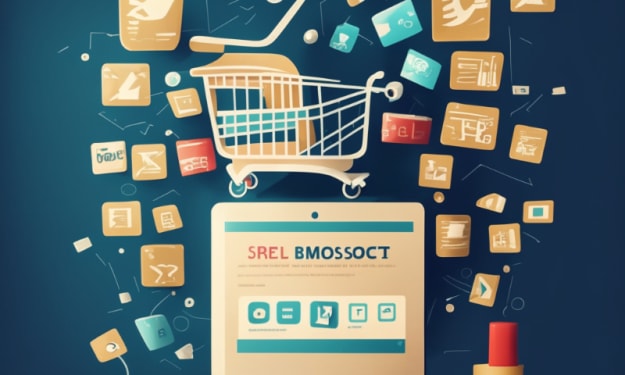e-commerce in marketing management
Exploring the Future of Marketing Management through the Lens of Ecommerce: Convenience, Data Insights, and Scalability

Ecommerce, or electronic commerce, refers to the buying and selling of goods and services over the internet. With the rise of technology and the internet, ecommerce has become an increasingly popular way for businesses to reach their customers and drive sales. In this essay, I will explore the reasons why ecommerce is the future of marketing management and how it can benefit businesses.
Firstly, ecommerce offers businesses a global reach. With traditional brick and mortar stores, businesses are limited by their physical location and the number of customers they can reach. However, with ecommerce, businesses can reach customers from all over the world, breaking down geographical barriers. This global reach allows businesses to tap into new markets and reach a wider customer base, which can ultimately lead to increased sales and revenue.
Discover the ultimate email marketing and automation software that will transform your business here

Secondly, ecommerce is convenient for customers. In today's fast-paced world, customers are looking for convenience and speed when it comes to their shopping experience. Ecommerce allows customers to shop from the comfort of their own home, at any time of the day or night. They can easily browse through products, compare prices, and make purchases with just a few clicks. This convenience factor can be a huge selling point for businesses, as it can lead to increased customer satisfaction and loyalty.
Thirdly, ecommerce provides businesses with valuable data and insights. When customers shop online, their behavior can be tracked and analyzed, providing businesses with valuable data and insights into their customers' buying habits. This data can be used to inform marketing strategies and improve the customer experience. For example, businesses can use data to personalize their marketing messages and promotions, making them more relevant to each individual customer. This can lead to increased engagement and ultimately, more sales.
Discover the ultimate email marketing and automation software that will transform your business here

Fourthly, ecommerce allows businesses to reduce their overhead costs. With traditional brick and mortar stores, businesses have to pay for rent, utilities, staffing, and other expenses. However, with ecommerce, businesses can operate with lower overhead costs as they do not need physical storefronts or as much staff. This can lead to increased profitability and allow businesses to reinvest in other areas of their business, such as marketing and product development.
Fifthly, ecommerce allows businesses to offer a wider range of products. With traditional brick and mortar stores, businesses are limited by their physical space and can only offer a limited range of products. However, with ecommerce, businesses can offer a much wider range of products as they are not restricted by physical space. This can be a huge advantage for businesses, as it allows them to cater to a wider range of customer needs and preferences.
Discover the ultimate email marketing and automation software that will transform your business here

Sixthly, ecommerce allows businesses to compete on a level playing field. With traditional brick and mortar stores, larger businesses often have an advantage due to their size and resources. However, with ecommerce, businesses of all sizes can compete on a level playing field. This is because ecommerce allows businesses to reach a wider audience and compete based on factors such as product quality, price, and customer service, rather than just size and resources.
Seventhly, ecommerce allows businesses to easily test and iterate their marketing strategies. With traditional marketing methods, such as print advertising or television commercials, it can be difficult and expensive to test and iterate marketing strategies. However, with ecommerce, businesses can easily test different marketing strategies and iterate based on the results. For example, businesses can test different landing pages, promotional offers, and email campaigns to see which ones are most effective in driving sales.
Lastly, ecommerce offers businesses a scalable model. With traditional brick and mortar stores, businesses often face limitations when it comes to scaling their operations. However, with ecommerce, businesses can easily scale their operations as they grow. This is because ecommerce allows businesses to automate many of their processes, such as order processing and inventory management, which can save time and resources. Additionally, ecommerce platforms often offer integrations with other tools and services, such as payment gateways and shipping providers, which can further streamline operations and allow businesses to scale more efficiently.
Discover the ultimate email marketing and automation software that will transform your business here

In conclusion, ecommerce is the future of marketing management for many reasons. It offers businesses a global reach, convenience for customers, valuable data and insights, lower overhead costs, a wider range of products, a level playing field, easy testing and iteration of marketing strategies, and a scalable model. As technology continues to evolve and the internet becomes more ubiquitous, ecommerce is likely to become even more important for businesses looking to stay competitive and reach their customers in new and innovative ways.
Discover the ultimate email marketing and automation software that will transform your business here





Comments
There are no comments for this story
Be the first to respond and start the conversation.